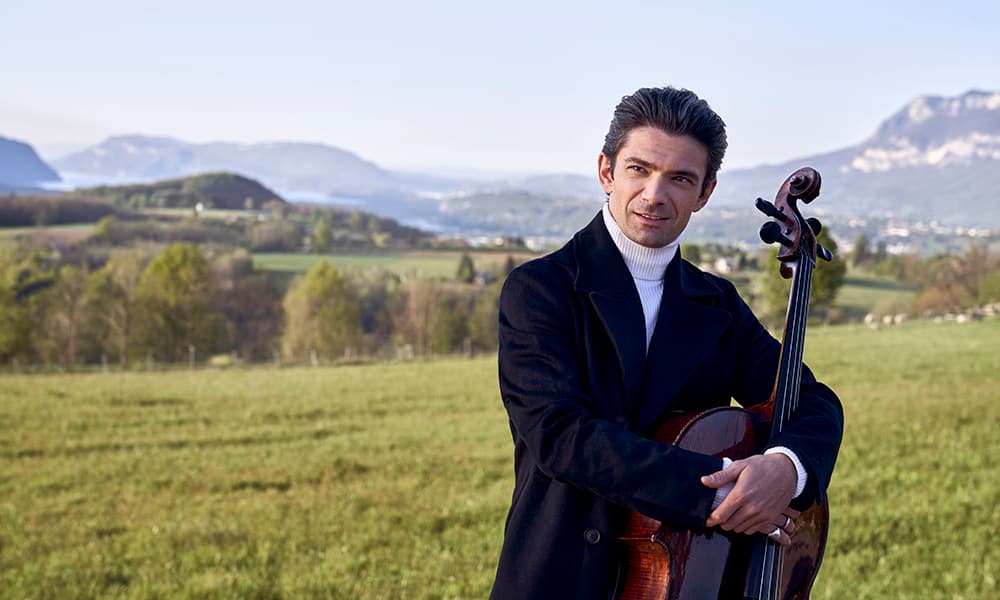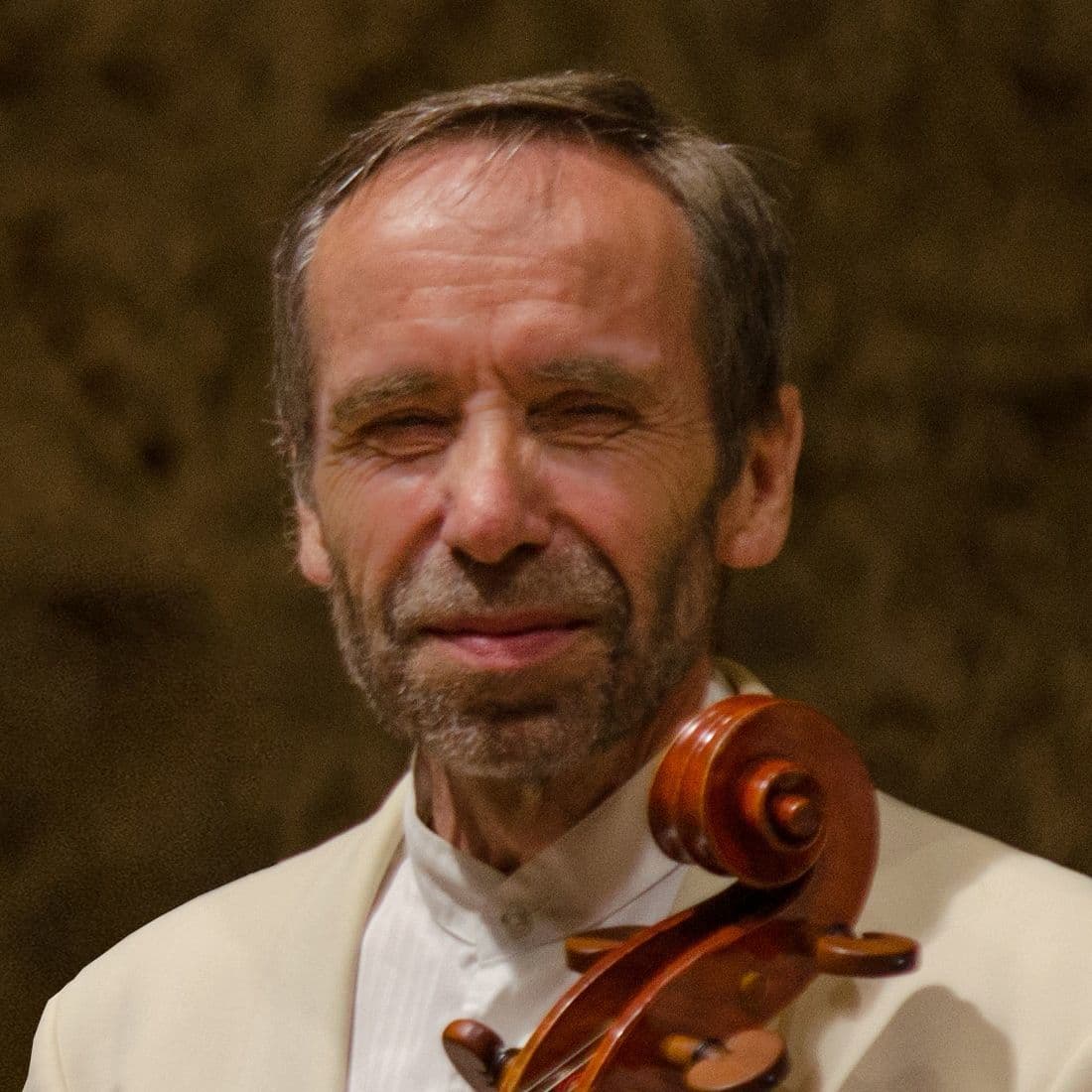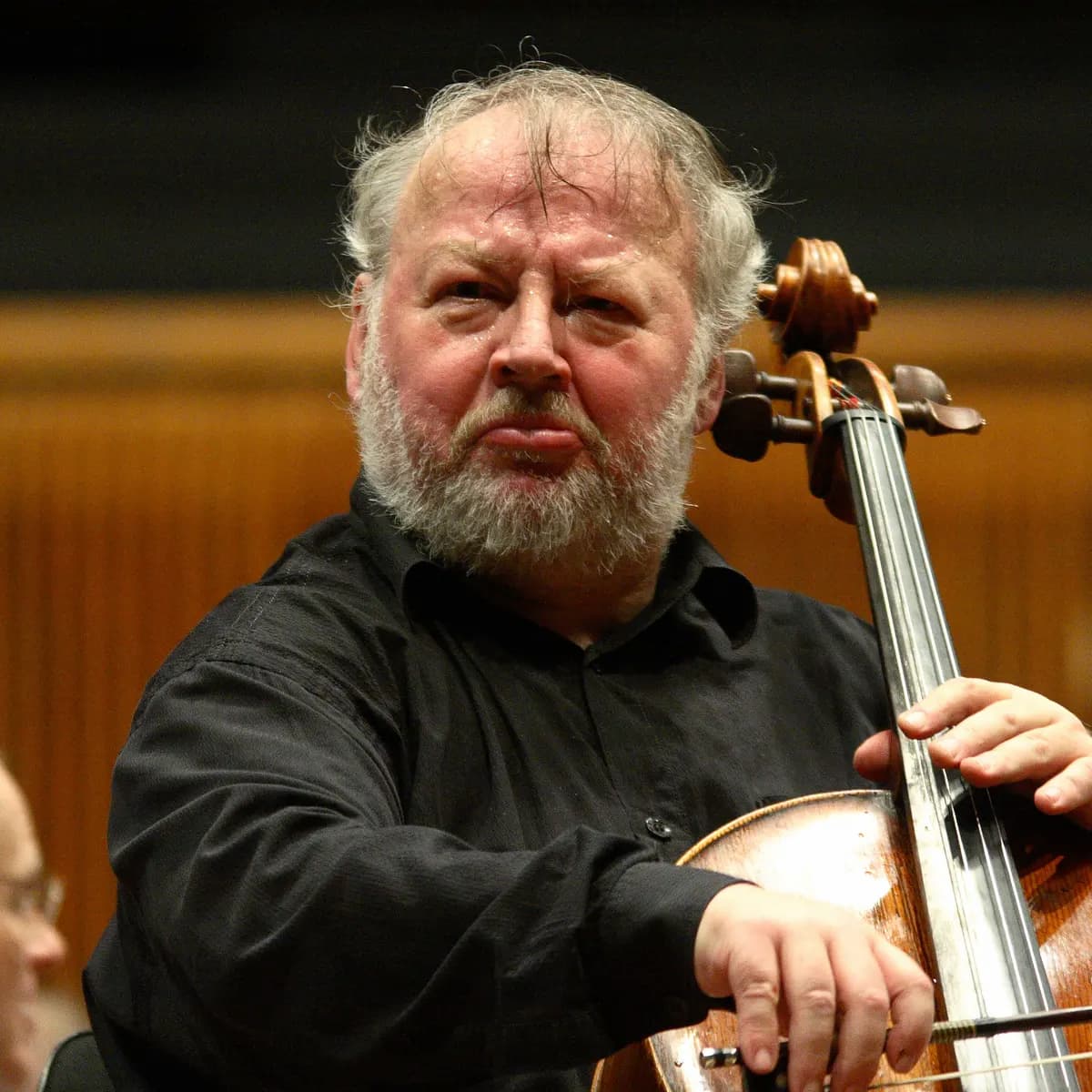Born on 3 September 1981 in Chambéry, Savoie, Gautier Capuçon comes from a highly musical family. Although his parents are not musicians, his sister is a capable pianist, and his brother Renaud Capuçon is an internationally established violin soloist and recording artist.
Gautier Capuçon Performs Elgar’s Salut d’Amour
In love with the Cello
Capuçon clearly remembers that his parents gave him a violin when he was four and a half years old. He tried out the instrument for a month, and then “quickly erased that experience from his memory…I truly hated it.” Since his older sister played the piano and his brother the violin, his parents decided to give him a cello to complete a piano trio. Capuçon remembers, “I loved it immediately. I loved the position, how you sit and embrace the cello, and the sound and depth of the lower strings.”

Gautier Capuçon
Capuçon started his formal musical education at the Ecole Nationale de Musique de Chambéry. And he considered himself very lucky to have met all of his teachers at the right time, in his career because, “the other way would not have worked.” His first teacher was Augustin Lefebvre, who communicated his true passion for the cello to his young student. “He loved music and the cello,” explains Capuçon, “and he knew how to talk to kids. I remember he would always say “Music has to swing” and in a way, that is exactly it.” Capuçon graduated with first prizes in both cello and piano.
Sergei Rachmaninoff: Cello Sonata in G Minor, Op. 19 (Gautier Capuçon, cello; Yuja Wang, piano)
Destination Paris
During his studies at Chambéry, Capuçon was overheard by Annie Cochet who immediately recognized his talents. She decided to take him to Paris and became his teacher at the Conservatoire Supérieur de Paris (CNR). Capuçon studied with Cochet for roughly ten years, and he credits her for building all of his cello techniques. In addition, he first met the exceptional French cellist and pedagogue Philippe Muller around the age of thirteen and initially took private lessons. Subsequently, he studied with Muller at the Conservatoire in Paris for five years.
Studying Under Philippe Muller

Philippe Muller
According to Capuçon, “Muller was a very demanding teacher, rarely saying that he was happy about how I played, so that pushed me to always work harder to improve my playing. We worked on most of the cello repertoire together and technically we worked a lot on my bow hand, which is based on Andre Navarra’s bow technique.” Muller had been a Navarra student, and he passed on a methodical and well-organized work ethic to his students. Capuçon always believed in hard work in building a proper foundation. “I did practice a lot when I was young, but it was not a pain for me. I truly loved it.”
Antonín Dvořák: Cello Concerto in B Minor, Op. 104, B. 191 (Gautier Capuçon, cello; Frankfurt Radio Symphony Orchestra; Paavo Järvi, cond.)
Further Study Under Heinrich Schiff

Heinrich Schiff
Capuçon graduated from the Conservatoire in 2000 with first prizes in cello and chamber music. He considers himself incredibly lucky to have studied with Muller, praising his teacher for having been there for him once every week. Capuçon went on to finish his studies with Heinrich Schiff at the University of Music and Performing Arts in Vienna. Schiff had also been a student of Navarra, but he had a completely different personality from Muller. While Muller was more introverted, Schiff was very outgoing. And although they had the same foundations, their playing was different as well.

© Felix Broede
Capuçon said in an interview, “with Heinrich, we worked more on the sound, how to produce a big sound without forcing. Actually, it’s funny because what feels loud is more about the quality of the sound you produce than just plain volume. Sure, you can press more or less, but the richness, depth, and intensity of the sound matter more. One thing that was really lucky for me with all my teachers is that they let me develop my own personality. They didn’t impose anything, they were there to help me do my best but didn’t always tell me how to do it. I had to think on my own too.” To Capuçon, playing the cello is all about the physical sensation, and communicating a sense of personality and charisma to his audience.
For more of the best in classical music, sign up for our E-Newsletter
